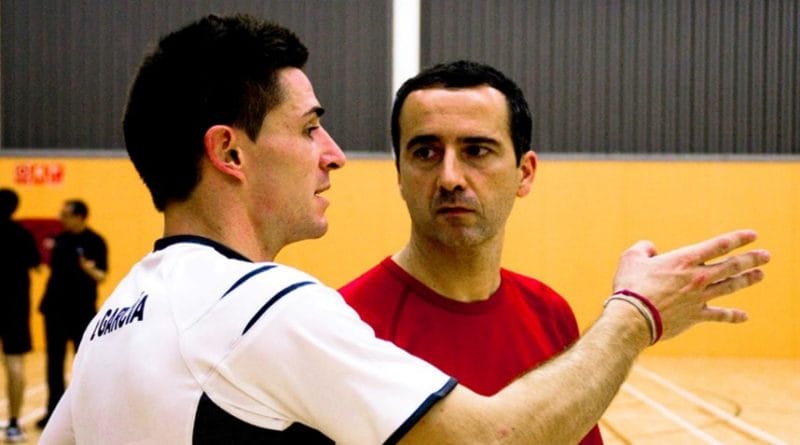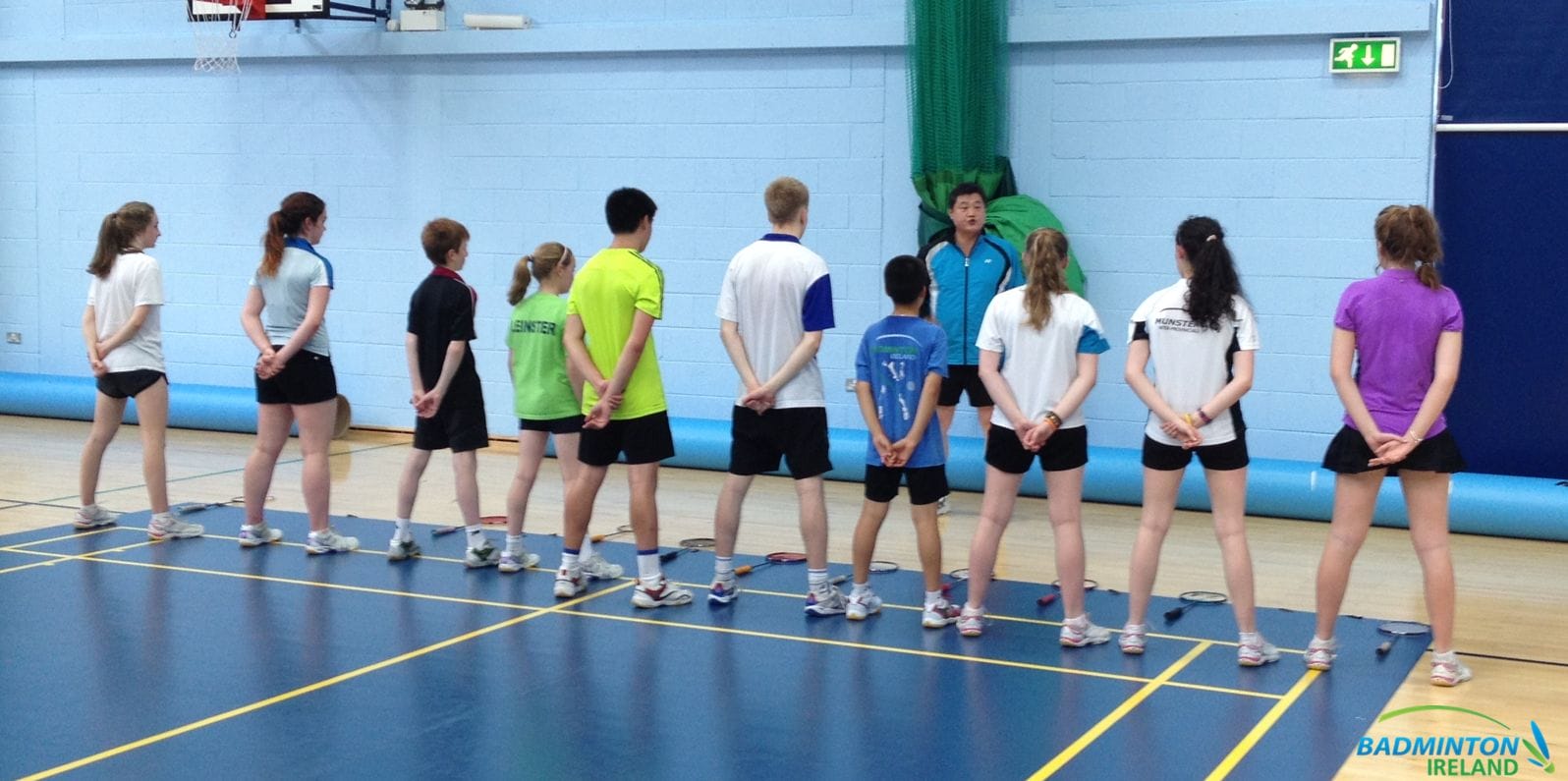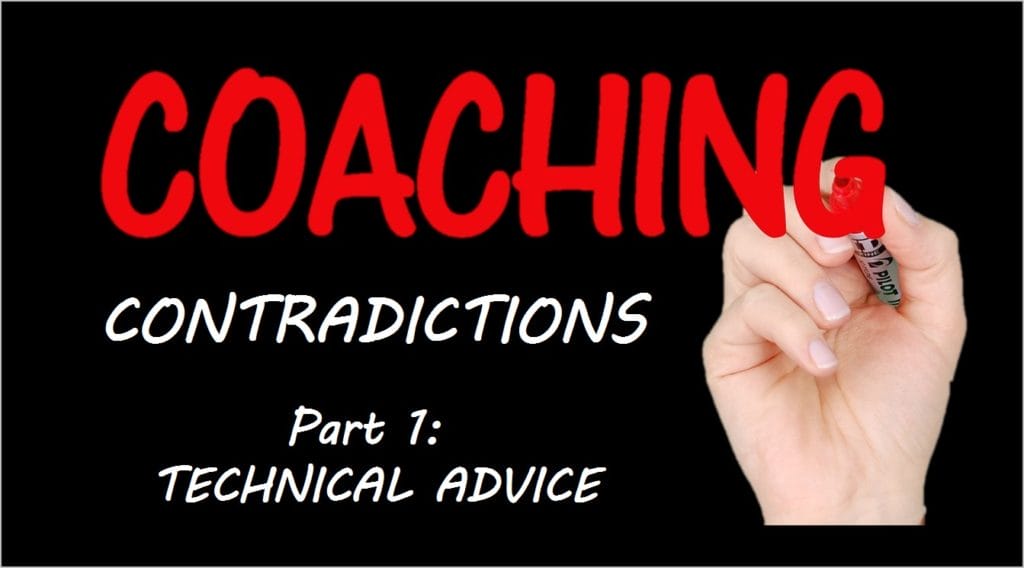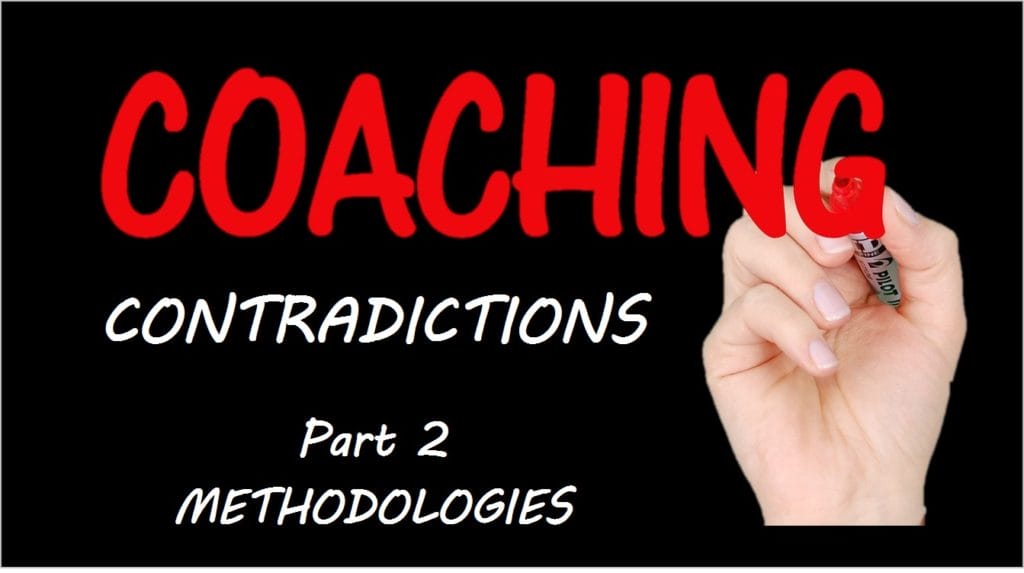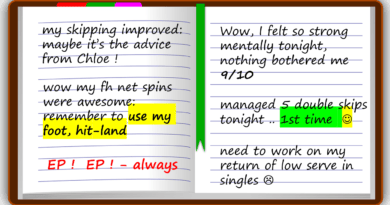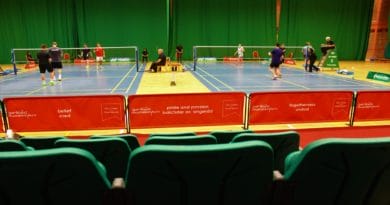6 Ways to resolve conflicting Badminton advice
I guess that it’s not unusual for you to receive Badminton advice.
It could come from players in the club, coaches, YouTube, or even your family members.
Everyone seems to have an opinion, including me at times!
People are generally motivated to help and at times everyone seems to know better, it can be confusing
Often the more enthusiasm you have, the more people, often coaches, are willing to offer help, tips or advice for improvement
Have you been offered conflicting badminton advice that confuses you?
What will you do to resolve this?
Not all this advice will be the same and some may even be the direct opposite to the things you have been told. It’s important that you understand how to work out what’s best for you. If you are a parent or coach you may have to guide your child/player towards a resolution. Conflicting badminton advice can confuse and make you doubt the things you know.
I was recently asked, “how can I resolve conflicting coaching advice from my two coaches?“
Advice from the squad coach differred from the player’s own coach.
– – – – – – – – – – – – – – – – – –
To help you resolve these situations try these 6 suggestions.
1 Does it work?
2 It is a Fad and “of the moment”?
3 Observe and talk to better players
4 Your coach & other coaches
5 It could be correct, but is it specific to you?
6 Should you ask a question?
+ Challenge Time !!
– – – – – – – – – – – – – – – –
1. Does it work?
Does what they say actually produce an improvement in your technique or gameplay?
Try out their advice, but be aware of how it makes you feel and if it actually improves your play.
Can your existing technique cope with any offered changes? Or, you may not be physically capable of carrying out the advice.
If you have flaws in your technique that prevent the advice from working, your development may be limited
At worst, trying out new things could cause you frustration and even injury
The alternative is also true
The advice could be just what you need and you may find immediate improvement.
There is no simple way to determine this other than to try it out. Do this a few times and allow things to change.
If it is a large change in technique then the process may be incremental, so ask for more help.
- Ask the person to break the advice down into small chunks and to recommend the small steps to take
- Can they suggest mini targets and possible achievements along the path to incorporating this advice?
- Can they outline the progressive practices that will all link together to create this new technique?
- If they struggle to give you supporting information, you have to hope that you can work it out for yourself
I recommend that you try out the advice in a game-like situation.
Static or ‘routine’ like practices are not the best environments for a complete test
Be aware of ‘Theories’ and ‘New Ways’
There are many people who have created a ‘new way’ of striking the shuttle or a method that magically helps you move faster around the court.
Just watching a YouTube video of two players gound through a multi-shot progression could help or it could leave you confused
I may be a little cynical as I’ve heard so many of these over the last 30 years
My advice
You must try these things out to establish if they work for you.
Some of the smallest tips I’ve been given have produced the biggest and best changes to my coaching and play.
Be open-minded to new ideas but remember that some advice will be suited to you and some not
However, some may just be plain wrong
Think about what is offered and accept only things that seem to work
– – – – – – – – – – – – – – – –
2. Is it a Fad
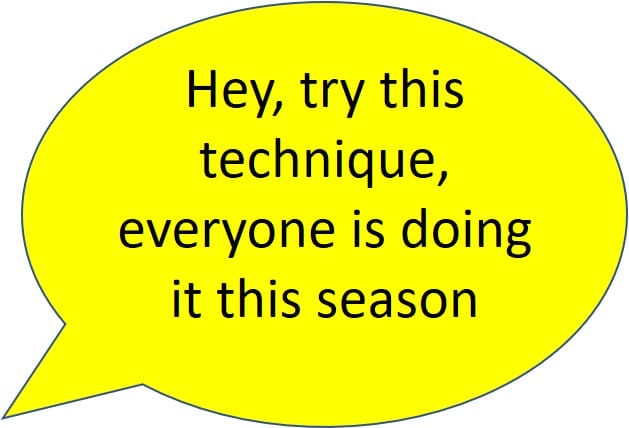 Be aware of fads, or topics that everyone seems to suddenly be coaching no matter who is in front of them.
Be aware of fads, or topics that everyone seems to suddenly be coaching no matter who is in front of them.
A fad is an intense and widely shared enthusiasm for something, especially one that is short-lived. Often it’s a change from the normal coaching or playing practice you are used to. The advice may apply to you at this stage of your development, but not always.
It may be a new hitting style, movement pattern, practice routine or ‘must have’ equipment. If it seems totally different from what you are currently doing be careful. You and your coach need to be certain that it will benefit you and that it adds something to the things you are currently doing. Try to find a benefit for you at this stage of your development.
These fads can originate from many different places. Sometimes they are a pure marketing strategy to sell more ‘must have’ equipment or use the latest ‘power developing’ string tension.
Coaching conferences
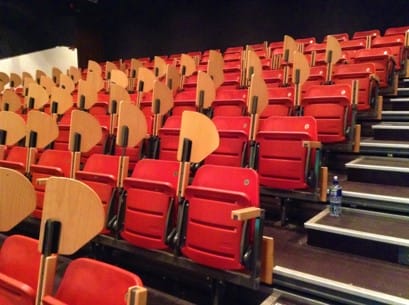 Coaching conferences can also provide what seems to be useful advice but when everyone starts following the trend without thinking then dangers can appear.
Coaching conferences can also provide what seems to be useful advice but when everyone starts following the trend without thinking then dangers can appear.
The danger is that they may believe that it must apply to all players because an expert told them.
Be careful, all the advice you hear cannot work for all your players.
Players come in all ages, standards, motivations, skills, the list is very long.
I’d advise that you ask the conference speaker which category of players they are referring to.
Good advice, if you listen carefully, will either be generalist or specific to a small group of player types. Even then it will often come with multiple ‘warnings’ and advice on how, when and who to apply it to.
Information at conferences must be treated as general advice and then assessed to see if it can apply specifically to your players
Here are a few that I’ve heard of
If you want a challenge, click the link at the end of the post and see which statement you agree with 🙂
- If you want to be a top player you need a string tension 28 lbs or over….. “30 lbs would be ideal”
- Reduce your overhead follow-through to almost zero in order to become a good player ….“save time by reducing your follow through”
- “Teardrop rackets produce faster smashes” …. marketing strategy?
- “Chasse as much as you can when moving” ….. “its what World Class players do”
- “Don’t pull your elbow back low in overhead preparation” ….. “it saves time”
- “You can move everywhere on the court in 3 steps” … “you must achieve this to be a top player”
- “don’t use a long grip, it reduces control;” …. “look what top players do at the net”
- “multi-sessions must contain sets of 15 – 30 shuttles” … “to get fit to must work with hard multi routines”
- “put your foot down before you play net shots or forehand pulls/drags” …. “it will increase your power & control”
Warning: don’t just change because “Coach X said it was the best way”. Be intelligent and ask questions… see no. 6
Ask yourself : who uses the technique, am I a similar standard to them?
Do I have the physical attributes to cope with the demands that this new practice requires?
What improvements should you expect and are they achievable?
– – – – – – – – – – – – – – – –
3. Observe and talk to better players
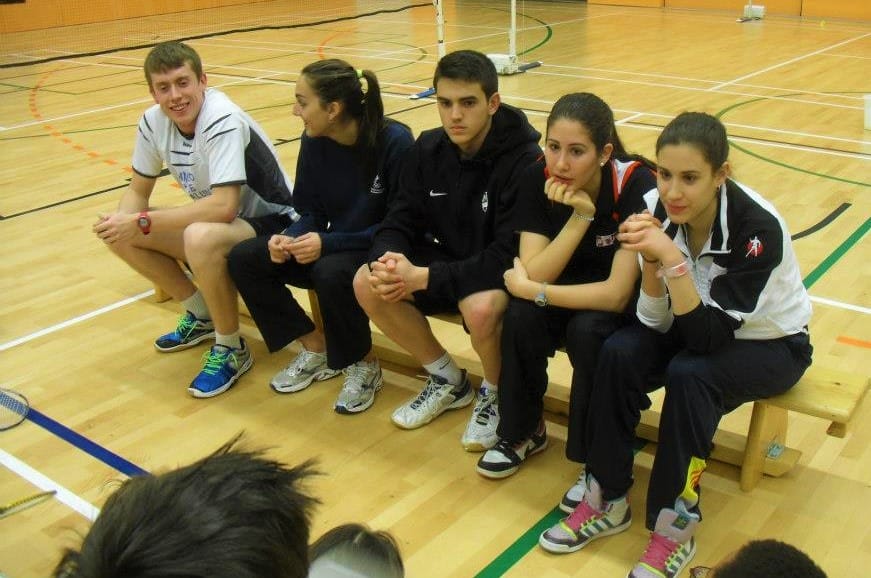 Once you have been given some advice, look at better players in your group, in tournaments and on YouTube, do they use it?
Once you have been given some advice, look at better players in your group, in tournaments and on YouTube, do they use it?
Are you being encouraged to do the things these better players do, you should be
However, be aware that elite/ world-class players are not always the best roles models
Some of the techniques they seem to perform effortlessly may in fact require high degrees of strength and precise internal timing
You should certainly dream of being able to perform as they do.
Can you see how they use the advice or tips you have been given? Observe others and see it yourself. Is it a skill you want?
If you have an opportunity to talk with better players ask them how to resolve conflicting coaching advice. Most will have experienced this before and it would be interesting to hear what they say.
It would be great if you wanted to post a comment below to share any suggestions that have had from ‘top players’ that has helped you to resolve conflicting coaching advice.
Talk with players in your group
Ask them if they think the advice is conflicting
Sometimes you are not as alone as you think
Then you could all ask the coach for clarification 🙂
– – – – – – – – – – – – – – – –
4. Your coach & other coaches
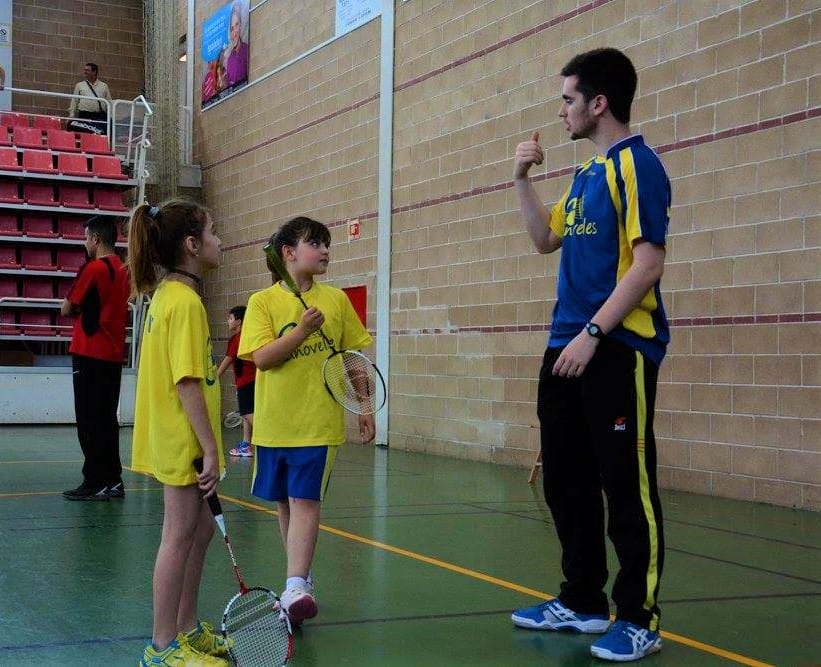
What to do if the advice conflicts with what your coach has been encouraging.
Be aware that your own coach, who should know you best, may deliberately not be doing some things with you.
There may not be a conflict just a ‘timing issue’
Your Coach should have mapped out a plan for your improvements. Part of this plan will involve not always telling you the areas in which you are weak or need improvement.
There may be a particular reason for this.
The time for that improvement or change may not yet have arrived. For example, it’s not recommended trying to change an overhead forehand technique in the middle of the season.
Starting a new technique 3 weeks before the Nationals can cause more problems than it solves!
The observations from other coaches may be exactly the same as those from your own coach. However, your own coach may already be working towards reducing any problem areas but without telling you so as to not lower your confidence levels.
Talk to your coach about the advice given to you. Don’t be surprised if they agree with it but have reasons why they didn’t tell you. Work with them, they are your coach!
If your coach dismisses the advice ask them why
It’s important that you work with your coach and have open communication. Ok, you may believe that you should try this new advice and they may disagree. Ask them for reasons and if you still don’t agree then you both have a decision to make.
I will produce another “6 Ways to talk with your coach” that hopefully will add more ideas to this topic.
– – – – – – – – – – – – – – – –
5. Is it specific to you?
Does the advice relate to you and your current playing level?
This is vital if it is to help you improve. Be aware of statements such as “this is what international players do, so you must also do it”.
The steps to this desired standard need to be explained. If the advice is based on sound fundamentals then over time you can refine your technique, develop the physical strength or master the mental skills required to achieve it. It should become a long-term goal not always an immediate target.
Try it out in practice then assess “is it applicable to you now”. Only by ‘doing’ will you find out. There is no problem in having a goal of incorporating the advice into your game, but only when you are ready.
If it seems correct and you think it will help you, then do more research and maybe think about introducing the technique or training programme into your sessions during the off-season.
Look for opportunities such as a period of development without tournaments, a few months in the gym, or just allowing yourself to grow and mature. All these things can turn what was certainly conflicting advice and not for you, into something that will enhance your game.
It may seem conflicting, however,unless you try things out you wont know
but please remember when in the sesaon is the best time to change
– – – – – – – – – – – – – – – –
6. Should you ask a question?
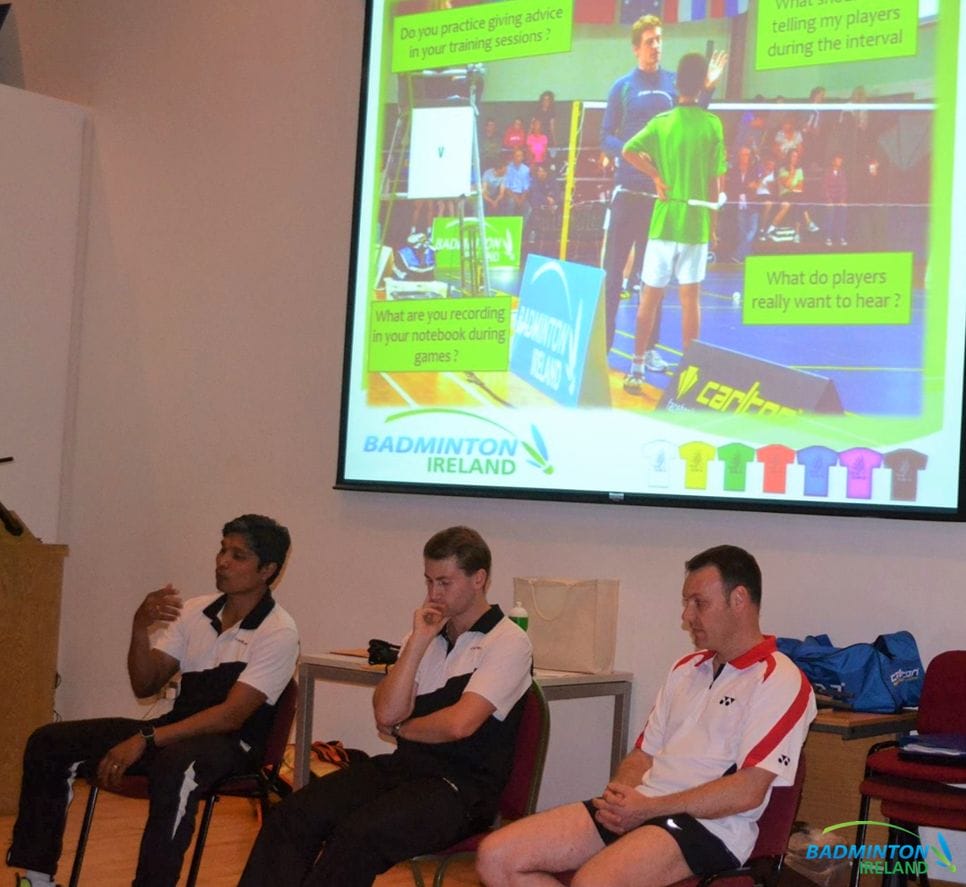 Anyone who offers advice should be open to a few questions in return. However, it may not be appropriate to ask immediately. You may not want to ask for fear of conflict or embarrassment. It is your choice.
Anyone who offers advice should be open to a few questions in return. However, it may not be appropriate to ask immediately. You may not want to ask for fear of conflict or embarrassment. It is your choice.
Knowing how to resolve conflicting badminton advice is not always easy. Decide if the advice causes you confusion, or stress or has a negative impact on your play.
I recommend that you do your best to remember exactly what was said and in what context. If it was a change in technique, record the details exactly. If it was general advice then jot down the theme and as much as you can remember.
Advice from Strangers
If the person giving this different advice is a stranger or someone you don’t know well, then ask them for more information. “who uses it?”, “what are the benefits?”, “how can I practice it?”.
Remember what they said or ask them to send an email to your coach or parents. Ask a few polite questions, but there is no need for an argument or to be rude.
Squad Coaches
If the person is a coach but one you only see occasional such as a National or Squad Coach then you will need to understand more. They must have seen you play enough to think that this advice will help.
I think it’s ok to ask them to show you how it works on the court and the benefits. They may get another player to do it, of course, but that’s ok.
However, that still doesn’t mean that it will be good advice for you. Hopefully, they will allow you to practice it on the court with them. They should show you a series of small practices and give you advice or tips so that you can try it out.
Your own Coach at home
Conflicting advice can still happen here. But, it’s often different as its not from your Coach.
Of course, it’s ok to ask as many questions as you want, it’s your Coach!!
I want to write a post called 6 ways to ask your coach a question.
Do you want to help with or give me ideas to include?
Remember working together is the best way to progress. There is not an exact ‘perfect’ model to follow. However, I do think that there are general principles that apply, more on this in later posts.
Question Time
Have ever been given conflicting badminton advice? …. I would really like to know how it made you feel
Do you have more suggestions on how to resolve conflicting coaching advice? …. leave a comment below
Do you encourage players to ask questions? …. what value does it provide to them and you?
– – – – – – – – – – – – – – – – – – – – – – – – – –
Bonus Section for those of you who want a Challenge

